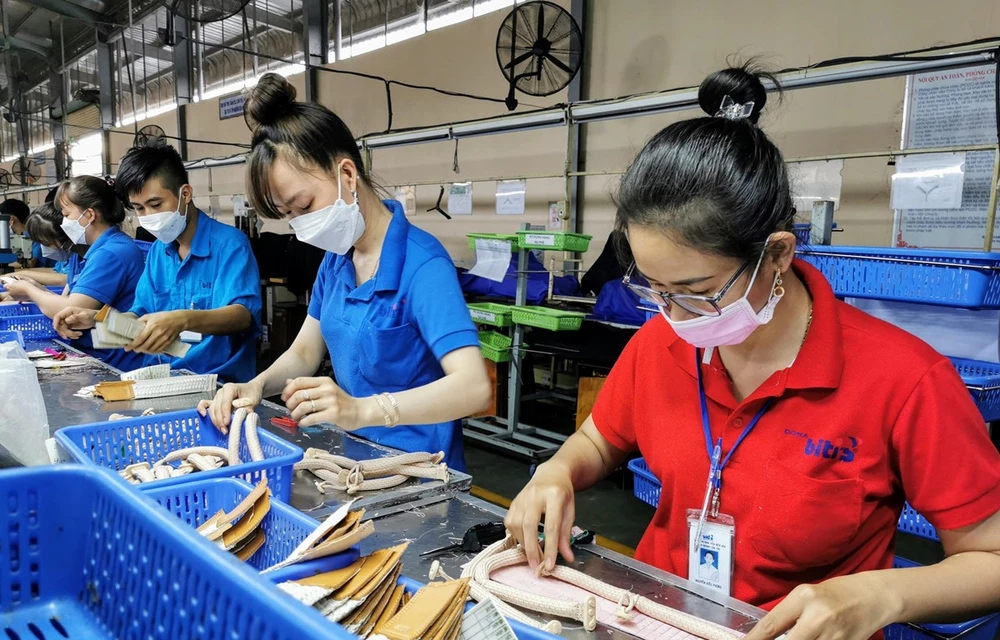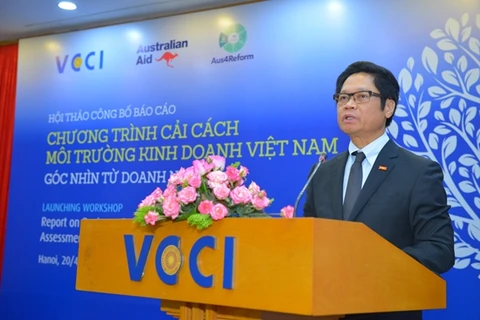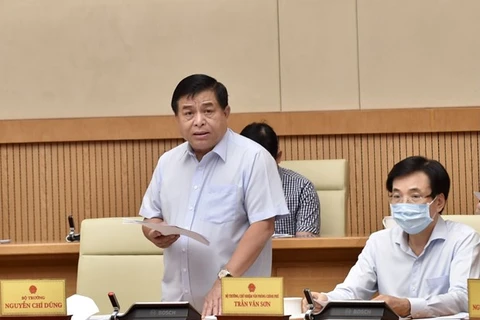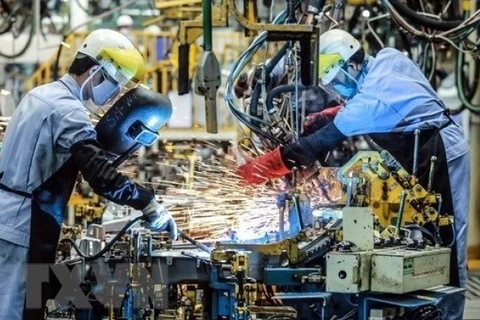
Hanoi (VNA) - In order to quickly recover and accelerate economic growth, economists say that at present, reforming and improving the business environment is more necessary and important than ever.
Speaking at a conference scrutinizing the implementation of Resolution No.02/NQ-CP on promoting socio-economic recovery and development in Hanoi on March 3, Nguyen Dinh Cung, former head of the Central Institute for Economic Management (CIEM), said prolonged social and mobility restrictions to check the spread of COVID-19 in recent months had significantly hampered efforts to improve the country's business environment.
As reforms lost momentum, there had been signs of resistance to proposed changes coming from the government's ministries and agencies.
"We have witnessed the return of business requirements that were once removed as well as additional requirements put in place," he said.
Dr Nguyen Minh Thao, head of CIEM's business environment and competition department, said efforts to improve the country's business environment had slowed significantly since the end of 2019.
Thao said too many commitments had been made on paper by the government but too few had been implemented and reviewed.
"For example, while local governments and ministries reported an increased number of administrative procedures available online in many cases they have not been able to effectively service businesses," she said.
It has been reflected in Vietnam's less-than-impressive Economic Freedom score. The country ranked 17th among 40 countries in the Asia–Pacific region with 61.7 points, just 0.01 points above the world's average.
According to Deputy Minister of Planning and Investment Tran Duy Dong, the Government was fully committed to the long-term and sustainable improvement of the business environment. It considered the improvements a driving force for economic recovery and national development.
Dong said the Prime Minister in January issued Resolution 02/NQ-CP on measures to speed up the process. The content of the Resolution shows the PM’s commitment to giving priority to improving the country's competitive capacity.
Thao, however, said 24 of 26 of ministry-level bodies had just set deadlines to implement reforms. Notably, the Ministry of Culture, Sport and Tourism and Vietnam Chamber of Commerce and Industry had not made public information regarding their action plans.
Similarly, just 50 out of 63 local governments had reported with the Ministry of Planning and Investment regarding their action plans while 13 others including the localities of Ba Ria-Vung Tau, Bac Lieu, Dong Nai, Ha Tinh, Hoa Binh, Hung Yen, Lai Chau, Long An, Quang Binh, Tay Ninh, Ho Chi Minh City, Tra Vinh and Vinh Long had not.
Commenting on the slow progress, Cung stressed the importance of support measures for the business community, severely battered by the pandemic and in desperate need of streamlined and less costly services to recover.
He noted that it is necessary to strictly and fully implement the tasks assigned in the relevant resolutions of the Government on improving the business environment and enhancing national competitiveness.
He called on all governmental bodies and offices to double their efforts to improve the business environment. He suggested no more technical barriers be created while local governments actively review and identify wasteful and costly administrative procedures to be removed immediately.
Cung said the efforts must be concentrated to push ongoing reforms further while easing resistance to change from ministerial offices. Domestic and international firms should be treated the same when it comes to administrative reforms.
At the conference, hosted by the Ministry of Planning and Investment, representatives of ministries, localities and businesses exchanged experience in connecting and exchanging information with international organizations to advance business environment reform. They discussed challenges for businesses and the implementation of Resolution No. 02; made recommendations on reforming the business environment and enhancing national competitiveness.
Resolution No. 02 selects some major reform content for the 2022-2025 period. These include improving the business environment to reduce procedures, time, costs and risks for enterprises, and reducing the list of investment and conditional business lines. Other improvements include reforming business conditions, removing barriers to investment and business activities, and digital transformation in accordance with administrative reforms. Further improvements are to enhance decentralization, local empowerment, inspection and supervision; focusing on solutions to support people and businesses in production and business recovery and overcoming the negative impacts of the COVID-19 pandemic; and creating institutions to encourage innovation and creativity./.























